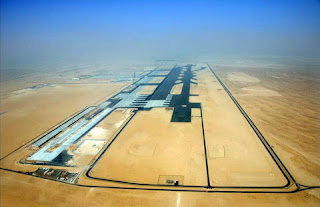In 1612, in return for a favor, Sir Thomas Roe asked King Jahangir of Indian sub-continent, to arrange for a commercial treaty which would give the East India Company, exclusive rights to reside and build factories in Surat and other Areas. This particular decision of Jahangir, proved devastating and humiliating for all the people of Sub Continent, for rest of the centuries to come. In my view, the current Govt. of Pakistan has still got to learn, many lessons from history.
Trading agreements between different nations are always considered fruitful for economic growth and development. WTO, not only has opened barrier free gates to new commercial and investment avenues for many countries but also it has also provided a platform for many countries to share their culture and tradition. Likewise, SAFTA agreement will not only bring prosperity among the countries of South Asia, but will also prove to decrease the animosity, existing between India and Pakistan. Trade relations, between these two countries, will hamper the further growth of hostile tension, as their mutual interests will be tied with the trading gains. That is what the supporters of trade treaty are Arguing all the time.
But this is only the one side of the picture. The second side is destructive and devastating for the economy of Pakistan. With increasing fuel prices and cost of production, Pakistan is suffering investment drain from past 4 years.In the Musharraf's dictatorial era, Pakistan was among some countries, who enjoyed the fruits of economic boom of 2003-07. Stock market was flooded with foreign investment, dollar was at 61 whereas CNG was available 24/7 at Rs. 38 per kg. And above all, we fresh Graduates had a fairly good freedom to select the career of our own choice. To keep it short and simple many people got financially stable in that era. But the situation prevailing today is not the same, as it was 6 years back. Dollar is 91, Fuel prices have crossed the psychological limit of Rs. 100, CNG is short in supply, Industry and Household are suffering Unannounced Load-shedding (Govt. call it load management), and above all the high Inflation and unemployment rate has added fuel to fire.
Readers in Economics must be familiar with the fundamental concept of circular flow of Income. whenever there is a leakage or injection into the flow, the balance is disturbed, resulting in an increase or decrease in the income, circulating within the economy. Situation is still good if the injections are equal to leakages, as the overall balance remains same. In case of Pakistan same is not going to happen. If we look at the current situation, Pakistan will loose at the all ends. Firstly, its local industry will face two fold competition, one from environment and second from Indian industry. Secondly the energy dependence on India will not only directly affect the homeland security but will also prove manipulative for Cost of production for Pakistani Products. Thirdly, the probable closure of local industry will result in mass level Unemployment. And last but not least, the cultural dominance of India will take its roots deep into Pakistan.
Lets talk figures, Currently the trade volume between the two countries is $2.7 Bn. If the MFN status of India becomes effective, the trade volumes will increase till $10 Bn but in doing so, Pakistan will have to forfeit Custom duties and other tariffs worth $3 bn. India has an export list of approx. 85O Items which all come under the SAFTA trade agreement, thus the duty of 5% cannot be imposed on Indian products. This situation will directly affect the sick Industry of Pakistan and many employees working in these sick Units. First the industry will be affected with the competition from cheap Indian commodities, secondly, the reliance of Pakistan on India for energy requirements, will sooner or later, will prove manipulative for cost of production for Pakistani products. thirdly, the Govt revenue will decrease significantly. Forthly, the Import bill will further Increase.
According to economist, 52% of Indian Population are living under poverty line, thus these 52% people are not playing any role in economic development of India. Thus Indian Investors are in search of new markets, and in this case Pakistan, the next door neighbour, is the best option. in India's view, Pakistan is a perfect market to sell its products as its local production in adversely hit by power shortages, corruption, terrorism and protection money payments. Any cheap product injected into Pakistani economy will adversely affect local Industry. Also the environmental factors are in favour of India as it will draw prospective direct local investment into India and in return, owing to the lawlessness in Pakistan, there wont be any direct investment in Pakistan from Indian side.
The remedies are very simple, Pakistan should adopt 3 fold strategy before entering into any trade agreement with India:
- Control over moral and financial corruption.
- Reduction in power shortage
- Control over lawlessness and terrorism
If the Govt. of Pakistan adopts these three strategies persistently, Pakistan can talk to India on equal terms where both the countries benefit from bilateral trade. An unjust gain from one side will again force the two countries in a situation which will deteriorate the trust buliding environment, which is currently augmenting, and then we will al witness the remaking of a history.
